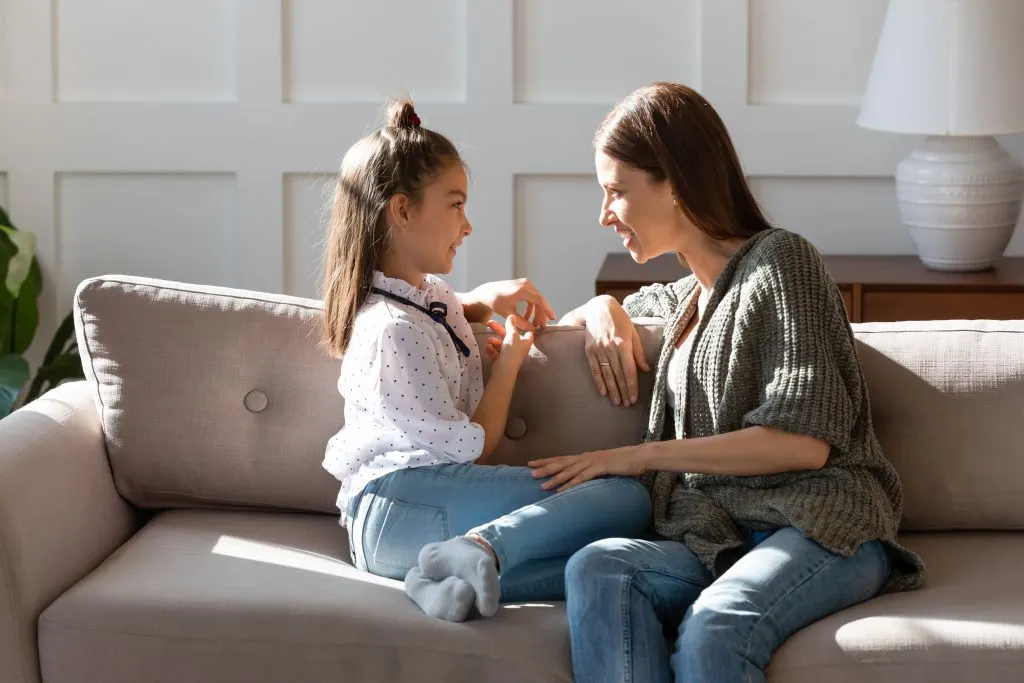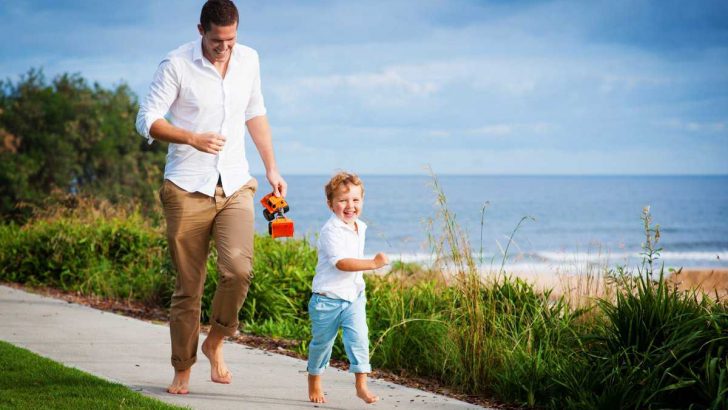You’ve probably heard of the term “helicopter parenting”.
It’s an expression that refers to the extremely protective relationship parents have with their children.
Helicopter parents are parents who excessively monitor all activities in which their child is involved.
This type of parent is ready to save and protect the child from any risk, no matter how small.
Given the way children grew up in the 60s and 70s, and even in the 80s and 90s, this style of parenting is definitely a modern phenomenon.
Helicopter parents are sensitized to all types of danger, both inside and outside the home.
When their fears are fed by media reports of various accidents, they are ready to minimize any possible risk to the extreme, often protecting the child from ordinary life.
Such parents never stop controlling their children as they grow older.
In fact, teenagers and young adults often have to fight for their own independence.

Even then, their parents try to get involved in every aspect of their lives, from enrolling at university to finding a job.
American scientists have discovered that the worst combination for a child is helicopter parenting with a lack of parental connection and warmth.
This combination often leads to low self-esteem in young people.
But it also leads to problematic behavior in young people, such as smoking, alcohol and drug use, and stealing.
From choosing what clothes the child will wear, even if the child is already old enough to choose his or her own clothes, to resolving even the child’s smallest conflicts with peers, helicopter parents deny their children the opportunity to solve their own problems and thus develop skills they desperately need for life.
Their intentions are almost always good, but the motivation lies in their own fears.
This then leads to much bigger problems than the ones they’re trying to prevent.
If you think you yourself are being over-protective of your child, or perhaps you’re already sure you’re a helicopter parent, here are some tips to try and change your attitude towards children.
1. Instead of doing things for them, teach them to do things for themselves

Life skills are acquired through repetition, so involve your children in daily activities from the start.
Once they’ve mastered certain skills, step back and let them perfect them on their own.
Whether it’s getting dressed or preparing their lunches for school, even young children can be involved in decision-making.
Empowering your children to take care of themselves, organize and manage their time will not only boost their confidence, but also give you more free time.
2. Breathe in… Breathe out

Before you run to rescue your child from potential danger, take a moment to reassess the situation your child is in.
When a child calls you for help as usual, even if he’s not in real physical danger, you don’t have to physically run to help him every time.
Try to encourage him verbally, offer suggestions on what he could do and support him so that he can find his own solution to his problem.
Whether it’s putting on socks or climbing on the playground, your child needs confidence to find a solution to a problem.
Your help, when he asks for it, only means that he’ll encounter the same obstacle another time and get stuck in the same place.
3. Be more observant

Learn to be more subtle when supervising your child.
Instead of chasing your child around the playground, sit on a bench and observe him.
When putting together a puzzle, sit down with your child and give him the time and space to work it out for himself, rather than offering ready-made solutions.
Instead of leaning over your child, give him space and observe from a distance.
4. Wait before helping

If your child is used to you running to help him at every cry, this probably means that you automatically respond to every call for help and are constantly looking for a reason to intervene to help him.
As you allow your child to be more independent and encourage him to seek solutions to his own problems, you’ll need to break the cycle of responding immediately to your child’s calls.
Sometimes an encouraging word is all your child needs, not necessarily your physical presence by his side.
5. Nature is not your enemy

Parental fears limit children’s play in nature, which could have long-term consequences for them.
Today, children spend less and less time in nature.
Parents feel that there is a much wider choice of toys and activities to play with at home.
For them, children are “safer” at home and don’t have to deal with outside dangers.
No, children need to play outdoors and should be in nature every day to develop and grow normally.
It’s very important that you include your “common sense” when it comes to balancing play with the potential risks such play entails.
Allowing children the freedom to play outdoors every day is vital!
It’s very important to protect your children from danger, but it’s even more important to teach them to assess risks and solve their own problems.
Let children be free and accept that there will be accidents, disappointments and frustrations.
Be there to catch your children when they fall instead of stopping them from trying to climb in the first place.

